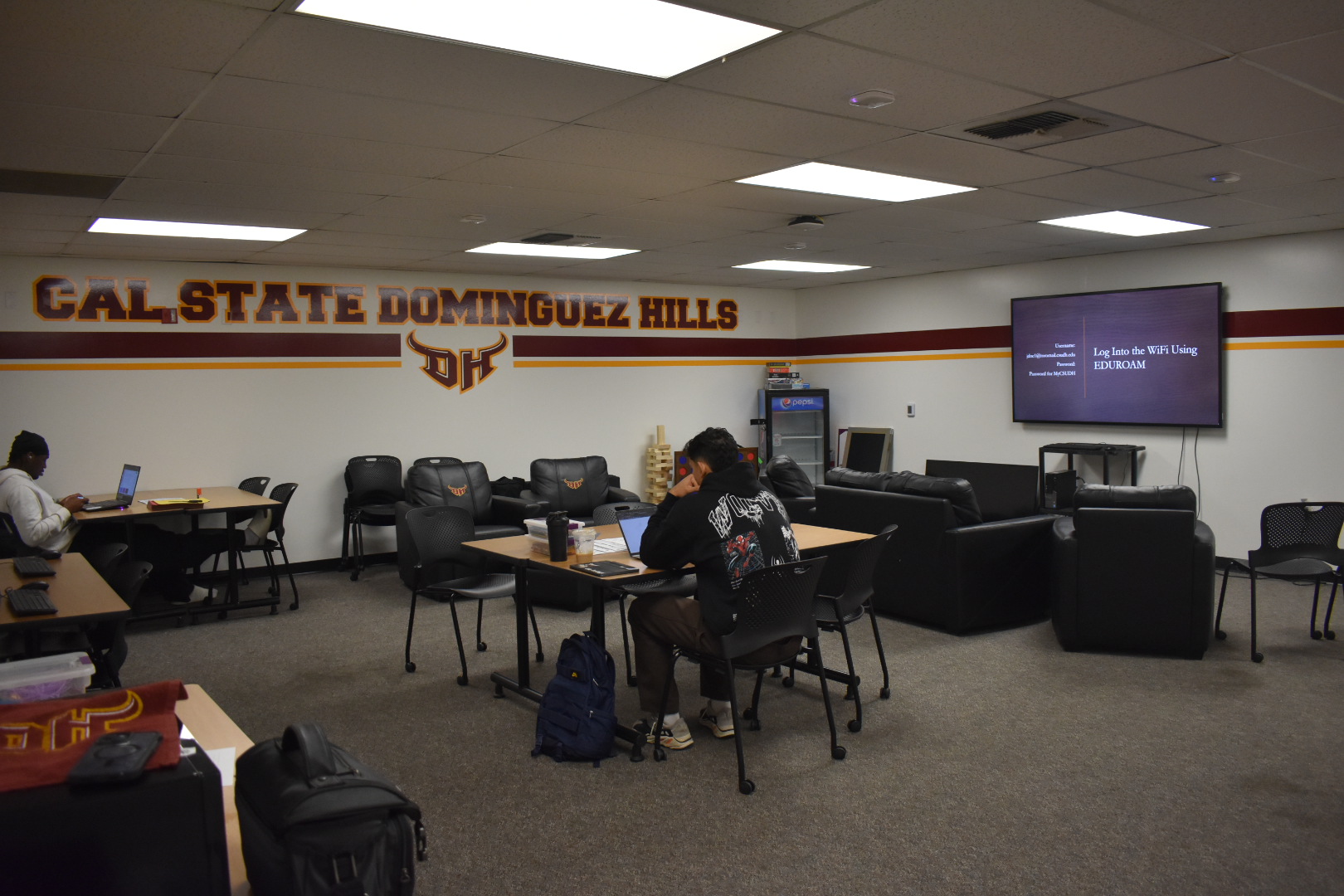By Jimmy Dominguez, Executive Editor & Deshawn Pouper, Staff Reporter
Editor’s note: On Nov. 20, 2024, The Bulletin reported on a proposed 28-percent budget cut to Toros Athletics based on statements made during a Nov. 18 meeting between SAAC and Student Affairs Vice President William Franklin. Subsequent clarifications revealed Athletics will face a 9-percent reduction, proportional to broader cuts within Student Affairs.
While The Bulletin’s reporting accurately reflected the information shared by SAAC members at the time, the newsroom recognizes the importance of clarifying this discrepancy. This article provides updated information to reflect those clarifications.
Speculation around budget cuts to Toro Athletes began circulating among student-athletes and staff earlier this semester. As fall teams finished their regular season, concerns grew about how a rumored 25-percent reduction might impact the department next year as CSUDH faced a $12 million system-wide deficit. By mid-November, speculation turned to uncertainty after a meeting between university administrators and the Student-Athlete Advisory Committee (SAAC).
VP Franklin: cuts a matter of “misinformation”
Confusion about the proposed cuts to Toros Athletics arose following a Nov. 18 meeting between SAAC and William Franklin, the CSUDH vice president of student affairs. According to SAAC members present, Franklin announced a 28-percent reduction to Athletics due to the budget crisis. While Franklin provided few details, SAAC members said he assured them that Athletics would ultimately remain stable. The Bulletin reported on the aftermath of the meeting on Nov. 20, noting that Franklin had declined to provide further information for the article.
A few days before the university closed for the Thanksgiving break, Franklin hosted a town hall on Nov. 25 to inform coaches about the budget proposal. At that meeting, Franklin clarified his previous remarks to SAAC, saying that the university planned to reduce Toros Athletics’ 2025-2026 operating budget by only 9 percent.
In an email to The Bulletin on Nov. 26, Franklin said SAAC members had misinterpreted his comments. The article, he continued, was “exceedingly inaccurate” and “profoundly misleading,” and he denied using the term “layoffs” to explain the university’s possible next steps. Additionally, Franklin said coaches had “expressed dissatisfaction with the inaccuracies and the anxiety they caused.”
In a follow-up message on Dec. 10, Franklin declined to name the coaches who had raised concerns, saying it was “not [his] place” and “not every coach attended” the town hall.
Crunching the numbers
Franklin met with 10 members of SAAC on Dec. 2 to further explain the university’s budget proposal, set to be submitted to the California State University Chancellor’s Office by Feb. 1. SAAC and Franklin both invited The Bulletin to attend the meeting. (Full disclosure: Sports editor Jeremy Dent-Smith is a SAAC member. To avoid a conflict of interest, Dent-Smith did not oversee the editorial process of this article.)
In a 13-slide deck, Franklin detailed the finances and recent history of Toros Athletics during the hour-and-a-half meeting.
“This is a lot of content,” Franklin said. “Let me take the responsibility, because we were just having a conversation [on Nov. 18], and I didn’t share these numbers, I didn’t give you the context. I gave you content.”
Toros Athletics has been part of Student Affairs since 2019, Franklin explained. The division typically operates on a $4.5 million annual budget, of which 28 percent is allocated to Athletics. With Student Affairs expected to see a $1.4-million cut next year, Toros Athletics will lose about $386,000 as part of proportional reductions – nearly 9 percent of its total budget.
“Universities were told to plan,” said Franklin, referring to an October directive from CSU. “Now that we’re in December, it’s even more of a situation.”
Plans for future funding
While presenting a slide titled “Planning Underway,” Franklin outlined the university’s strategies for addressing the budget shortfall: utilizing savings, reallocating funds from vacant positions, and reducing travel expenses. A fourth option, marked “personnel,” was blacked out.
“That’s the last thing we want to get to,” Franklin said. “Will we get to that fourth bullet? I hope not. I certainly hope not. But is it up there? It has to be, because I don’t want to come in here and try to blow smoke.”
Franklin admitted that the university struggled to generate revenue for Toros Athletics while handling day-to-day operations, but noted Toros basketball and volleyball camps as examples of successful revenue streams. He remained confident that the university would find appropriate funding by exploring the “top three” options.
“But I don’t know everything I need to know,” Franklin said. “We’ve got people who are looking into everything.”
Hope for a way forward
Junior track and field athletes Teloni and Leloni Ervin told The Bulletin afterward that they appreciated the clarity about the budget.
“I agree with when [Franklin] apologized for saying that he said a lot of stuff but didn’t give us the details, the finer details,” Leloni said. “I feel like that’s where the confusion lied in terms of the 28 percent.”
Teloni agreed with her twin sister, noting that Franklin appeared more organized during the second meeting compared to the first. The last meeting felt “like it was based on emotions” and Franklin didn’t have a formal presentation.
“I’m going to be honest – it felt like we didn’t really have a voice to talk about it because it’s like, oh, if I say something, [Franklin] is just going to say, ‘oh, nope, that’s not true.’” Teloni said. “This is just the beginning to, hopefully, a future of communication transparency between our department and our presidents.”
Such conversations will be critical going forward, said Toros Athletics academic counselor Kisha Calbert. She told The Bulletin that Franklin may meet with student-athletes again sometime next semester.
“Most schools don’t have administrators that are willing to come down and talk to students about kind of upper-level things,” Calbert said. “So if he still wants to do that, whenever he wants to do that, he’ll always be welcome.”

